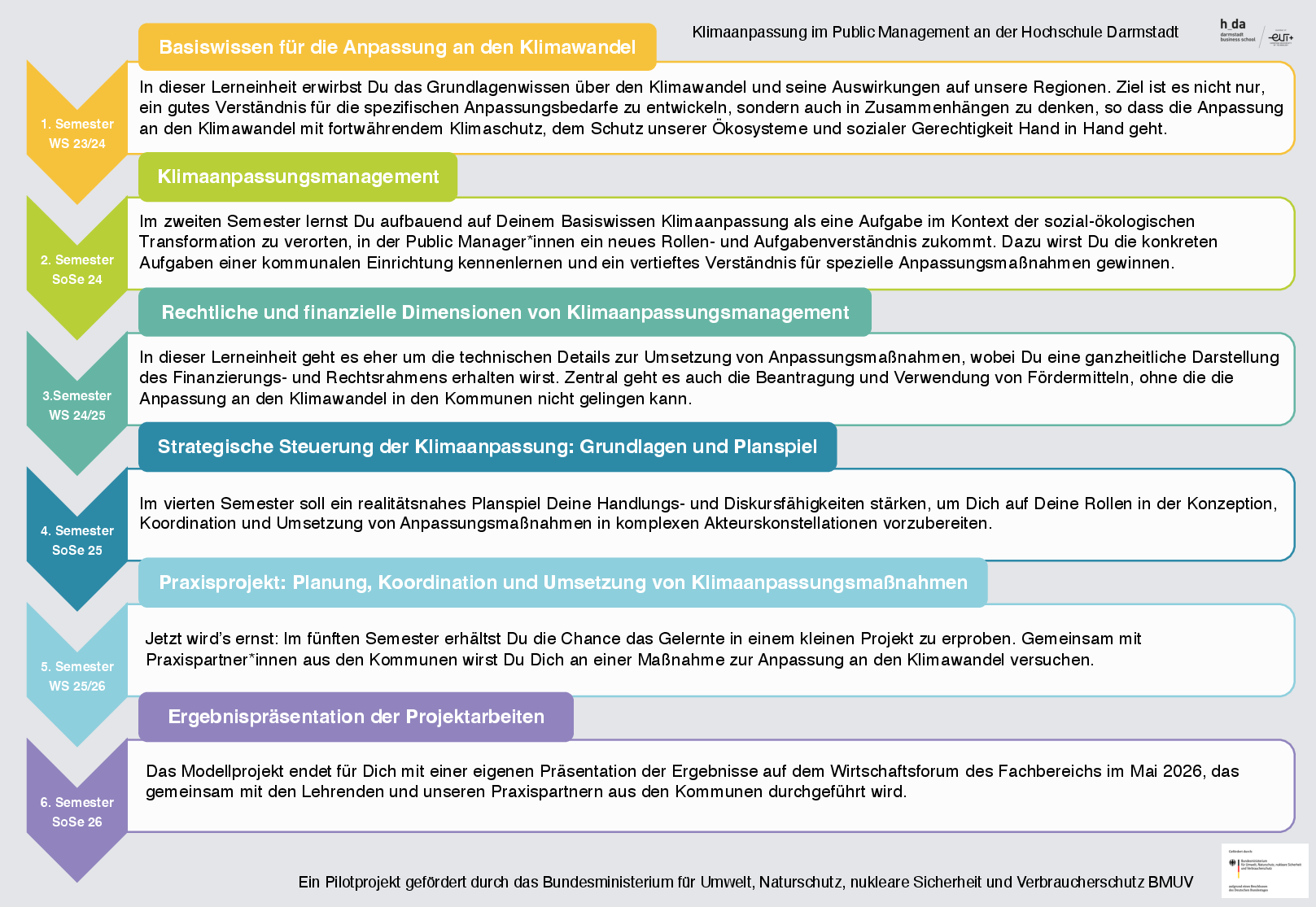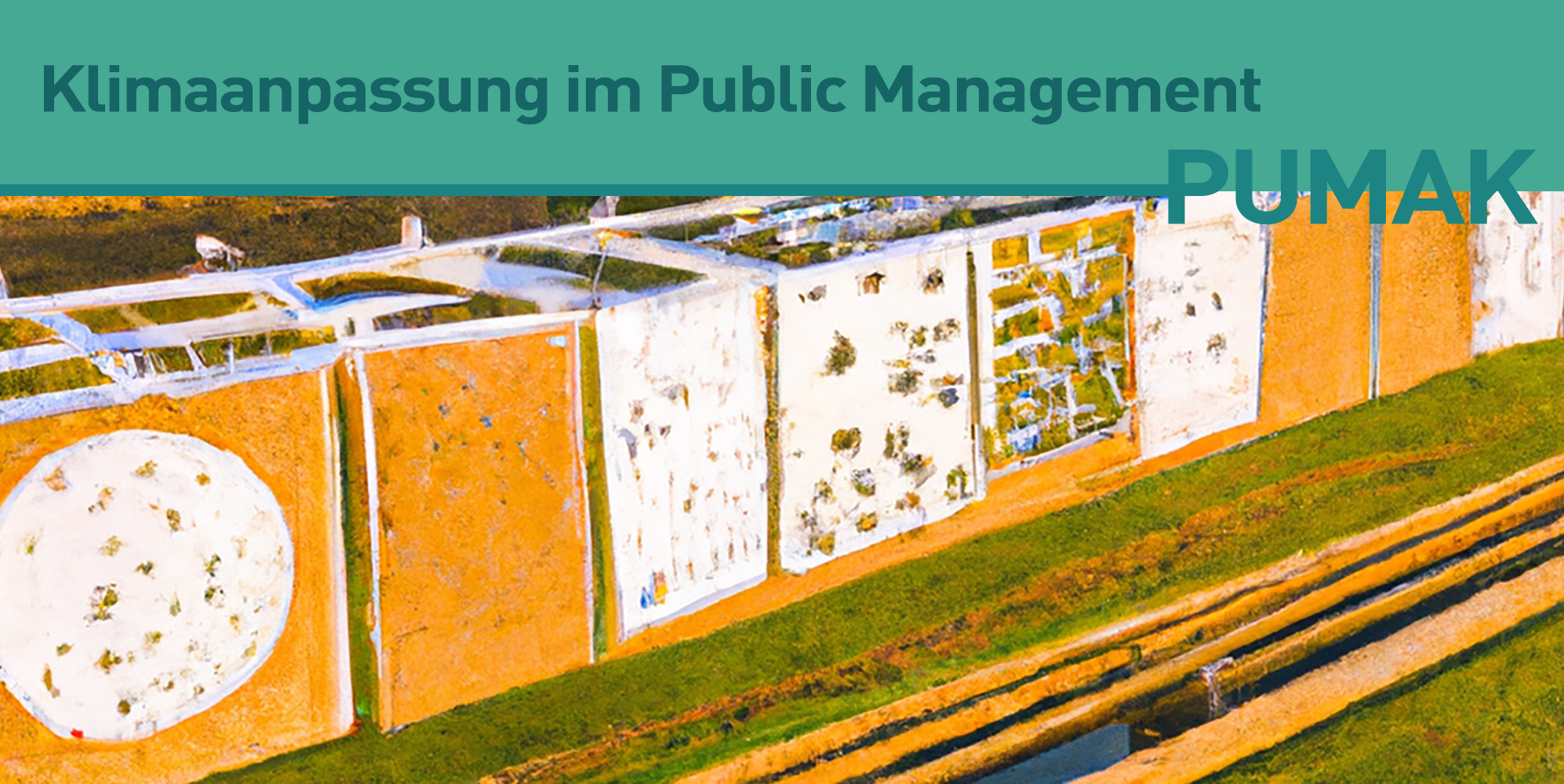
Climate Adaption in Public Management
Our project aims to develop an innovative curriculum for the Bachelor's degree in Public Management at Darmstadt University of Applied Sciences. The pilot project is funded by the Federal Ministry for the Environment, Nature Conservation, Nuclear Safety and Consumer Protection (BMUV) as part of the funding line "Measures to adapt to the consequences of climate change".
At a time when climate change is an increasingly urgent challenge, it is crucial that future specialists in the public sector are prepared to deal with this topic competently. Our curriculum will therefore be designed to prepare students in a practical and needs-based way for the central role that adaptation to climate change will play in almost all areas of municipal task profiles. We want to enable them to understand the complex field of climate adaptation management and actively participate in shaping this important future task in public administration.
Another focus of our project is on helping to shape the still young profession of climate adaptation manager. In addition to acquiring skills through further training courses, we want to create a solid foundation in basic training.
To ensure that our curriculum is closely linked to practice, we work closely with a network of local stakeholders in our region. This enables students to test their acquired knowledge directly on real challenges and develop practical solutions.
A further aim of our project is to design teaching at universities in such a way that it is in line with planetary boundaries in terms of Education for Sustainable Development (ESD) and supports the acquisition of skills to promote sustainability transformation.
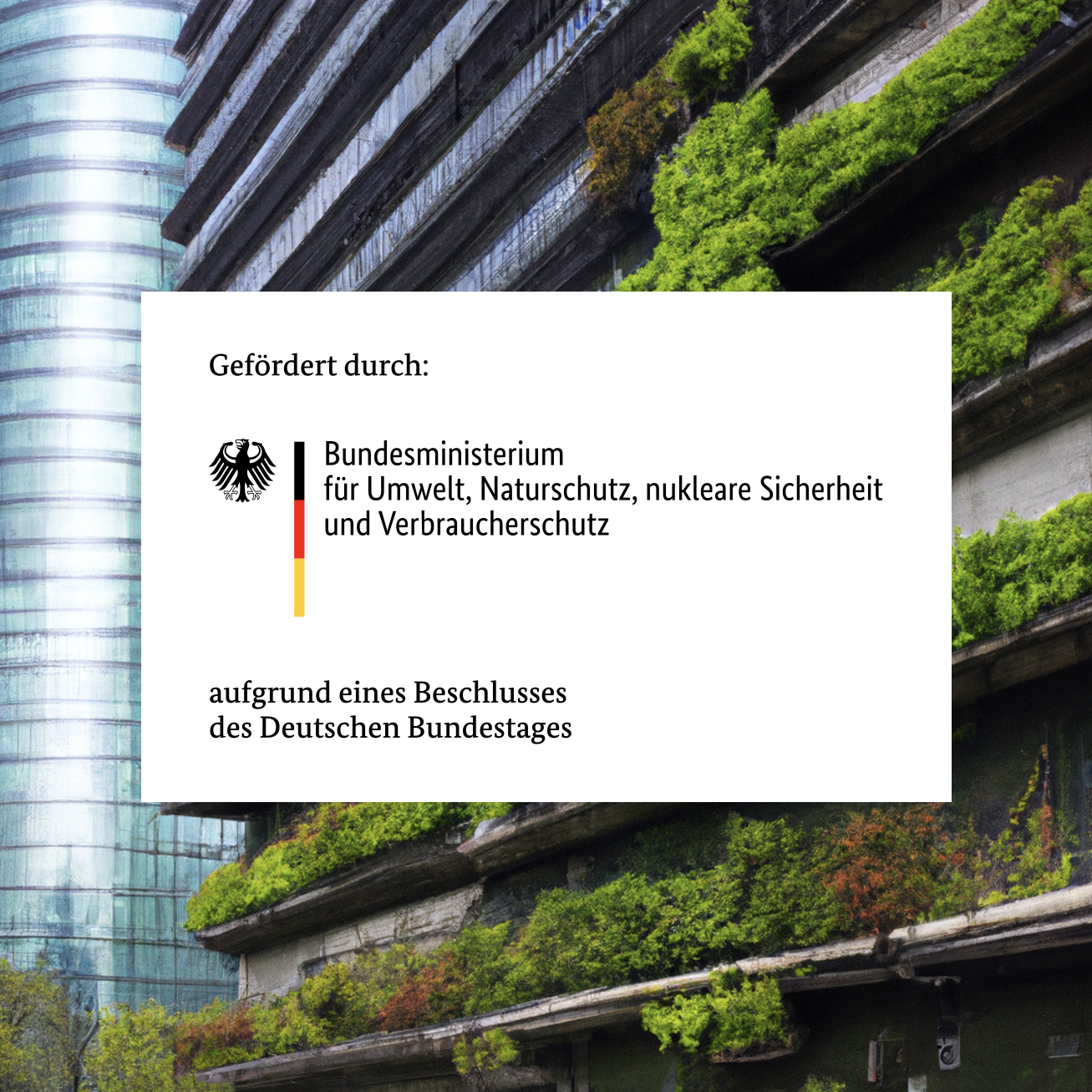
Climate adaptation" focus page at the Federal Ministry for the Environment (BMUV)
Project management organization: Zukunft - Umwelt - Gesellschaft (ZUG) gGmbH
Description of the funding program at the project management agency
Funding reference: 67DAS290 Duration: 01.10.2023 - 31.05.2024
Kick-off workshop
April 17, 2024 - Darmstadt University of Applied Sciences
What skills and knowledge do specialists in climate adaptation management need to have? And which of these skills and knowledge will all employees in administrations and public companies need in the future so that the mainstreaming of climate adaptation can succeed across the breadth of municipal tasks? What does the job description of a climate adaptation manager look like and what does that of a generalist who has to manage climate management as one of many challenges in the public sector look like? We explored these questions at our kick-off workshop on April 17 and can look back with satisfaction on an extremely productive and enjoyable day.
Representatives from various specialist departments, municipal specialists and generalists entrusted with climate management as well as experts from academia came to work with the project team on the further development of our curriculum. In the morning, the UBA, the ZKA, the ISOE and the FZK of the HLNUG presented exciting insights into their work on the legal situation and adaptation strategy, on the previous offers and experiences in further education in the field of climate adaptation management, on research on the status and progress of municipal climate adaptation in Germany and on knowledge transfer.
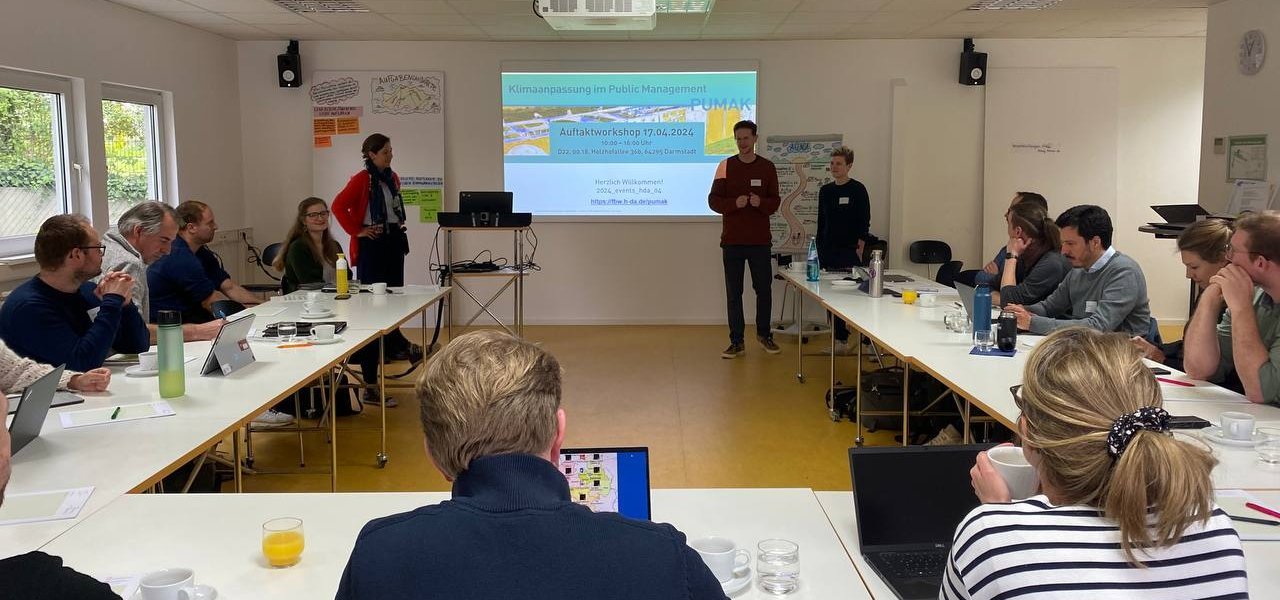
After the lunch break, the project team presented its curriculum and invited participants to discuss the above questions in two workshop rounds. Numerous other participants from Darmstadt, Dietzenbach, LaDaDi, Fischbachtal, LANUV/NRW, Münster (Hesse), Rüsselsheim, the Hessian Ministry of Agriculture and Darmstadt University of Applied Sciences contributed their practical experience and provided valuable insights into the typical challenges and conditions for success in municipal climate adaptation.
We would like to thank all participants for their committed contributions and the great interest in our event and other networking activities. A big thank you also goes to our fantastic moderator, who made a significant contribution to the success of an exciting and inspiring day!
BMUV strengthens the development of climate adaptation skills in public education
Press release from 19.09.2023
Christian Kühn, Parliamentary State Secretary at the Federal Ministry for the Environment, presented a funding decision to Darmstadt University of Applied Sciences today. With funding of 193,000 euros from the funding guideline "Measures to adapt to the consequences of climate change", Darmstadt University of Applied Sciences intends to develop new standard modules on climate change adaptation for its Public Management course. The aim is to anchor the acquisition of skills in the field of climate change and climate impact adaptation in the basic university training of employees in the public sector.
Parliamentary State Secretary Christian Kühn: "The climate crisis poses growing challenges for employees in the public sector. Extreme weather events in particular are causing problems for many municipalities and federal states. However, they often lack the necessary knowledge about climate change and the concrete options for adapting to the consequences. Darmstadt University of Applied Sciences is therefore making a truly sustainable contribution by building up solid basic knowledge during the course of study..."
Press release of the Federal Ministry for the Environment (BMUV)
The individual educational modules of the curriculum developed for the project complement the existing curriculum and integrate seamlessly into the Bachelor's degree program in Public Management (B.Sc.), which focuses on sustainable development as well as digital and socio-ecological transformation.
The course content is structured consecutively: In one module per semester, the relevant topics are developed, tested and evaluated for the piloting student cohort, who began their studies in the winter semester 2023/24, building on each other and over the entire duration of the project .
The project team's teaching staff will be supported by expert guest lecturers. Workshops and excursions also supplement university teaching by making theoretical knowledge tangible and accessible.
Municipal partnerships are deepened or newly established during the course of the project. This gives students the opportunity to participate in real measures for municipal climate adaptation as part of a practical project.
Our curriculum is based on the standards of ESD (Education for Sustainable Development) and aims to support students in developing skills for sustainable development. The key competencies for sustainability, as defined by Wiek, Withycompe and Redmann (articles from 2011 and 2021), are of central importance. These include Systematic Thinking, Future-Oriented Thinking, Normative Competence, Strategic Thinking and Interpersonal Competence, which complement subject-specific, general and other professional skills taught in the curriculum.
Our aim is to comprehensively empower our graduates so that they can appropriately and courageously tackle wicked problems such as climate change and adaptation to its consequences. This integrative approach enables our students to tackle complex challenges and develop sustainable solutions that meet the demands of our time.
Are you interested? The Bachelor's degree program in Public Management at h_da can be studied in three variants from winter semester 2024/25:
- PuMaFull (regular full-time Bachelor's degree program)
- PuMaDual (career entry in an organization parallel to studying at h_da)
- PuMaJob (for experienced professionals in the public or non-profit sector who want to gain further qualifications through a Bachelor's degree and continue working part-time)
The modules "Climate Adaptation Management" will be part of the course again from winter semester 2024!
Why study Public Management at h_da? A detailed description of the profile of our degree program can be found here.
The application process starts at the beginning of June 2024. Find out more here.
Project manager
Dominik Gager
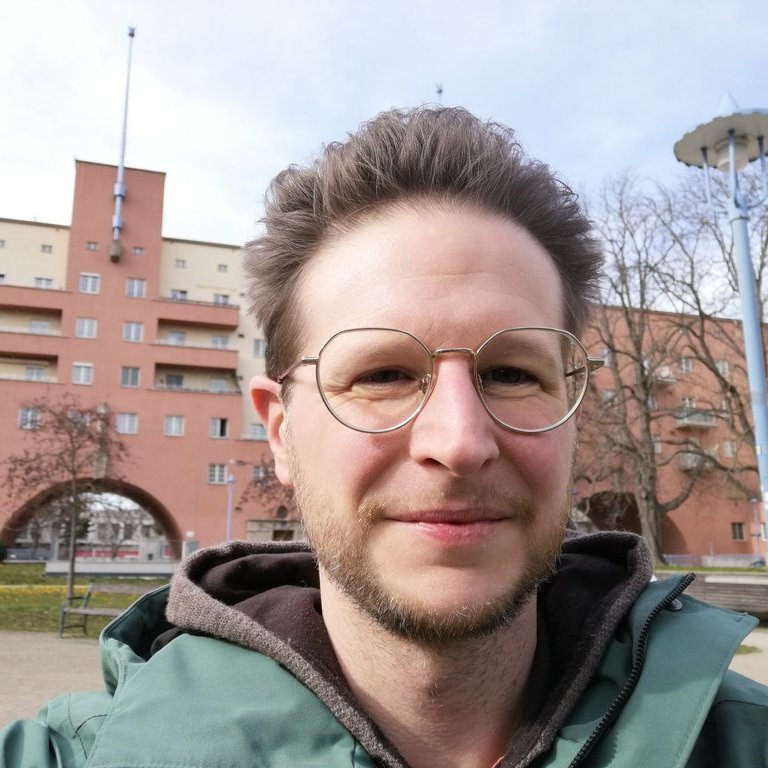
Dominik Gager (born Düber) has been Professor of Sustainability Transformation, especially in the public sector, at h_da since January 2023. His teaching, research and transfer focus on socio-ecological transformation. The focus is on topics such as climate protection, adaptation to the consequences of climate change, spatial planning/land use and the integrity of the biosphere. In addition to his experience in scientific research projects on these topics, Dominik has worked for five years in public administration in the fields of climate, environment and sustainable development, most recently as head of a municipal office for environment and climate protection.
Projektkoordinatorin
Sonja Kleinod

Sonja Kleinod is a philosopher and sociologist and has been involved in various research and transfer projects as a research assistant at h_da and the Center for Sustainable Corporate and Economic Policy (ZNWU) since 2019. She wrote the application for the PUMAK project together with Uli Klüh and, together with Dominik Düber, is now responsible for developing the curriculum, running the corresponding courses and, as project coordinator, is the contact person for practically all matters relating to the project.
Municipal partnerships
Friederike Edel

Friederike Edel(Dipl.-Kffr.) is Professor of Public Management at Darmstadt University of Applied Sciences. As head of the degree program , she develops and tests innovative approaches to transfer-oriented teaching. At the same time, she is involved in research projects at Darmstadt University of Applied Sciences on issues of digitalization and sustainability with a view to public administration.
Projekt Supervisor
Ulrich Klüh

Ulrich Klüh is Professor of Economics with a focus on macroeconomics, finance and economic policy at Darmstadt University of Applied Sciences. He is also a founding member and spokesman of the board of the Center for Sustainable Economic and Corporate Policy (ZNWU). His research focuses on the political economy and political ecology of the ongoing socio-ecological transformation, the history of dogma in economic thought and applied monetary, fiscal and financial policy.


